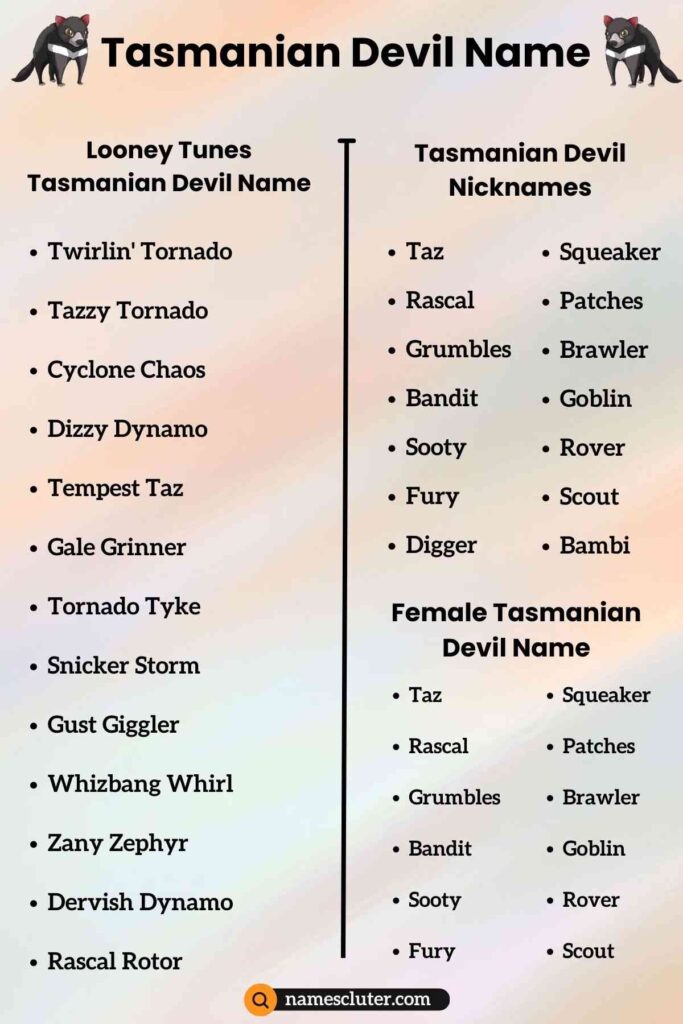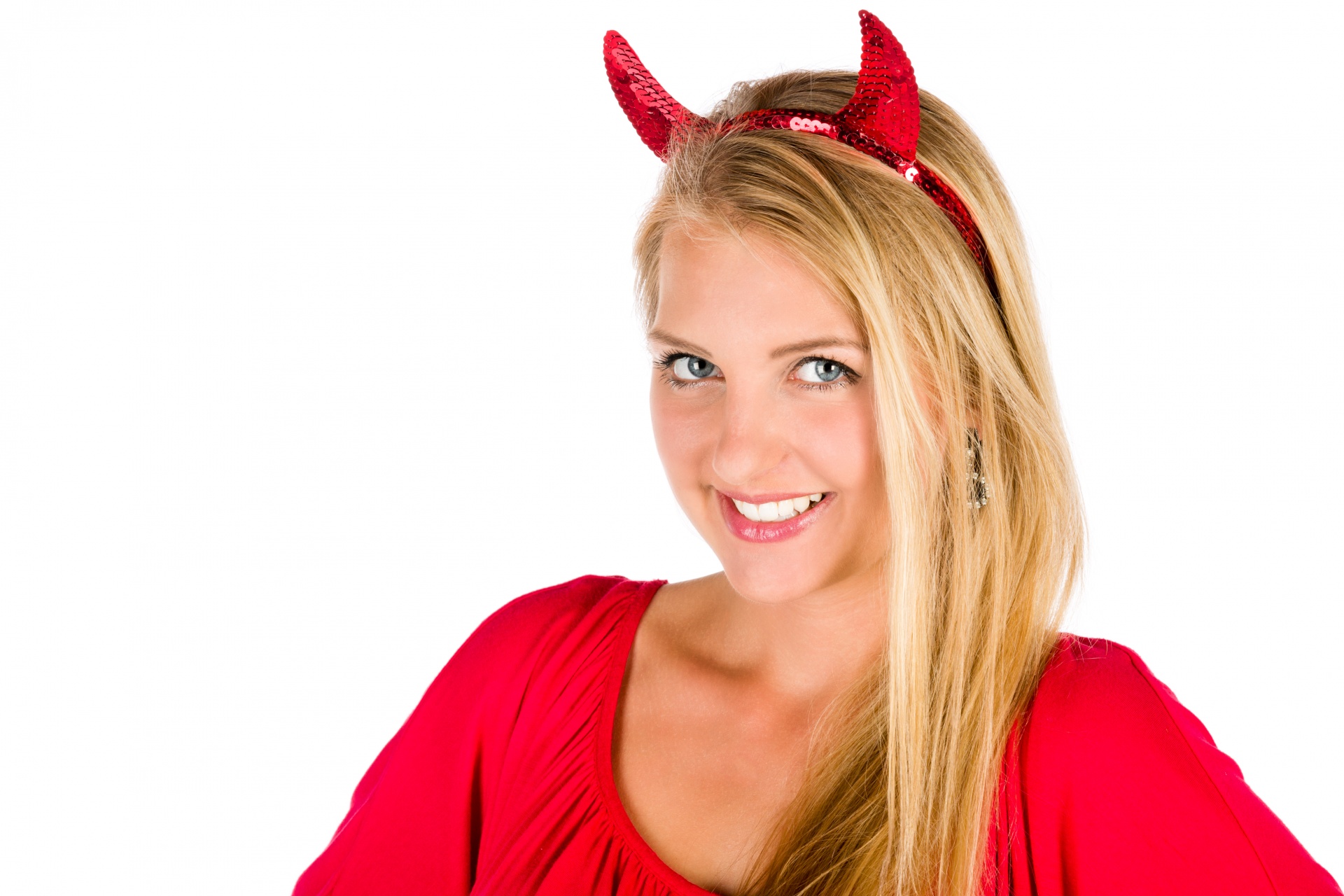When it comes to devil names for females, there's something undeniably captivating about these dark monikers. Imagine a name that carries an air of mystery, power, and rebellion. These names are not just labels; they're statements. They're the kind of names that make people pause, take notice, and maybe even feel a little intimidated. So, if you're on the hunt for a name that screams strength and defiance, you're in the right place.
Now, before we dive headfirst into this shadowy world of devilish female names, let's take a moment to appreciate why people are drawn to them. Maybe it's the allure of the forbidden, or perhaps it's the desire to embrace the darker side of life. Whatever the reason, these names have a certain magnetism that's hard to resist. They're like a siren song, calling out to those who dare to embrace their inner darkness.
And let's not forget, devil names for females aren't just about the spooky or sinister. They can also be elegant, exotic, and downright enchanting. So, whether you're naming a character, a pet, or even your own little bundle of joy, these names have the potential to leave a lasting impression. Let's get started, shall we?
Read also:Eevie Aspen Real Name Unveiling The Star Behind The Persona
Table of Contents
- The Origins of Devil Names for Females
- Popular Devil Names for Females
- The Symbolism Behind Devil Names
- Cultural Impact of Devil Names
- Long-Tail Devil Names for Females
- Choosing the Perfect Devil Name
- Famous Figures with Devil Names
- Historical Context of Devil Names
- Modern Trends in Devil Names
- Conclusion: Embrace Your Inner Darkness
The Origins of Devil Names for Females
Alright, let's rewind the clock and take a trip down memory lane to explore where these devil names for females actually come from. It turns out, the roots of these names go way back, tracing their origins to ancient mythologies, folklore, and even religious texts. Back in the day, people were all about naming things after powerful entities, whether they were gods, demons, or other supernatural beings. And let me tell you, some of those names had some serious staying power.
Take, for example, the name "Lilith." She's a figure from Jewish mythology who's often associated with the devilish side of things. Lilith was said to be Adam's first wife, but she wasn't exactly the submissive type. No, she demanded equality, and when she didn't get it, she left the Garden of Eden. Talk about a rebel with a cause! Over time, Lilith became a symbol of female empowerment and independence, making her name a popular choice for those who want to channel that same energy.
Historical Influences on Devil Names
But it's not just Lilith who's left her mark on the world of devil names. Throughout history, there have been countless other figures who've inspired these dark monikers. From ancient Greek mythology to medieval European folklore, the list goes on and on. Each culture brought its own unique twist to the concept of devil names, adding layers of meaning and depth to the names we know today.
So, why do people still gravitate towards these names? Well, it could be the sense of mystery and intrigue that surrounds them. Or maybe it's the idea that by embracing these names, we're tapping into something ancient and primal. Whatever the reason, one thing's for sure – devil names for females aren't going anywhere anytime soon.
Popular Devil Names for Females
Now that we've got the history lesson out of the way, let's talk about some of the most popular devil names for females. These names have made their way into mainstream culture, appearing in books, movies, and even music. They're the kind of names that stick with you long after you've heard them, lingering in the back of your mind like a haunting melody.
Here's a quick rundown of some of the top contenders:
Read also:Forearm Timeless Clock Tattoo A Symbol Of Eternity And Meaning
- Baphomet: A name that's often associated with the occult, Baphomet has a certain je ne sais quoi that makes it irresistible to those who appreciate the darker arts.
- Mephistopheles: Although traditionally a male name, Mephistopheles has been adopted by some as a powerful female moniker. It carries with it the weight of centuries of literary and cultural significance.
- Nyx: In Greek mythology, Nyx was the personification of night. Her name has become synonymous with mystery and darkness, making it a popular choice for those who want to evoke a sense of the unknown.
Why These Names Resonate
So, what is it about these names that makes them so appealing? Is it the way they roll off the tongue, or is it the stories behind them that capture our imagination? Whatever it is, these names have a way of drawing people in and making them want to know more. They're like a gateway to another world, a world where anything is possible and the rules don't always apply.
The Symbolism Behind Devil Names
Every name has a story, and devil names for females are no exception. These names are steeped in symbolism, each one carrying its own set of meanings and associations. Whether it's the promise of power, the allure of the unknown, or the thrill of rebellion, these names have a lot to say if you're willing to listen.
For instance, the name "Satan" is often seen as a symbol of ultimate rebellion against authority. It represents the breaking of chains and the pursuit of freedom, even if that freedom comes at a cost. On the other hand, names like "Lucifer" are often associated with enlightenment and knowledge, suggesting that sometimes the path to wisdom lies in the shadows.
Exploring the Deeper Meanings
But it's not just about the big, overarching themes. Devil names for females can also carry more personal significance, depending on the individual's beliefs and experiences. For some, these names might represent a connection to their heritage or a nod to their spiritual beliefs. For others, they might be a way of expressing their individuality and standing out from the crowd.
Cultural Impact of Devil Names
Devil names for females haven't just stayed in the realm of mythology and folklore. They've made their mark on popular culture, influencing everything from fashion to music to film. Just think about how many times you've seen a character with a devilish name in a movie or TV show. It's almost become a trope at this point, but one that continues to captivate audiences.
And let's not forget the impact these names have had on the world of music. Artists like Beyoncé and Lady Gaga have embraced their inner darkness, using devil names and imagery to create a persona that's both powerful and enigmatic. It's a move that's paid off big time, earning them legions of fans who are drawn to their bold and fearless approach to life.
How Devil Names Shape Our Perception
So, how do these names shape the way we perceive the world around us? Well, for starters, they challenge our preconceived notions about what it means to be feminine or powerful. They remind us that strength doesn't always come in the form of light and sunshine. Sometimes, it's the darkness that holds the most power, and that's a lesson that's worth remembering.
Long-Tail Devil Names for Females
Now, let's talk about some of the more unique devil names for females. These are the names that might not be as well-known as the big players, but they're no less interesting or powerful. They're the kind of names that make you stop and say, "Wait, what was that?" They're the names that stick with you long after you've heard them, lingering in the back of your mind like a forgotten dream.
- Astaroth: A name that's often associated with demons and the occult, Astaroth has a certain mystique that makes it hard to forget.
- Asmodeus: Although traditionally a male name, Asmodeus has been adopted by some as a female moniker, adding a layer of complexity to its meaning.
- Moloch: A name that's often associated with sacrifice and devotion, Moloch has a certain intensity that makes it stand out from the crowd.
Why These Names Deserve Attention
What makes these long-tail devil names so special? Is it the rarity of them, or is it the way they challenge our perceptions of what a name can be? Whatever it is, these names have a certain je ne sais quoi that makes them irresistible to those who appreciate the unusual and the unexpected.
Choosing the Perfect Devil Name
So, you've decided to go down the dark path and choose a devil name for your little one, your pet, or your next literary masterpiece. But where do you even begin? With so many options out there, it can be overwhelming trying to find the perfect name. Fear not, because I'm here to guide you through the process.
First things first, think about what you want the name to represent. Do you want it to convey power? Mystery? Rebellion? Once you've got a clear idea of what you're looking for, it's time to start exploring your options. Look into different mythologies, cultures, and historical periods to see what names resonate with you.
Tips for Finding the Right Name
Here are a few tips to help you on your journey:
- Consider the sound of the name – Does it roll off the tongue easily, or does it have a certain edge to it?
- Think about the meaning – What does the name mean, and does it align with your values or beliefs?
- Check the cultural significance – Is the name associated with any particular culture or tradition?
Famous Figures with Devil Names
Throughout history, there have been countless famous figures who've embraced the dark side with their devil names. These individuals have used their names to make a statement, to stand out, and to leave a lasting legacy. Let's take a look at a few of them:
Bio Table
| Name | Birth Date | Occupation | Notable Achievements |
|---|---|---|---|
| Marie Laveau | 1794 | Voodoo Priestess | Known as the "Voodoo Queen of New Orleans," Marie Laveau was a powerful figure in the world of occultism. |
| Isis King | 1981 | Model and Activist | Isis King made history as the first transgender woman to compete in America's Next Top Model. |
Historical Context of Devil Names
To truly understand the significance of devil names for females, it's important to look at them in their historical context. Over the centuries, these names have evolved, taking on new meanings and associations as they've been passed down through generations. They've been shaped by the cultures and societies that have embraced them, making them a reflection of the times in which they were used.
For example, during the medieval period, devil names were often associated with witchcraft and the occult. They were seen as dangerous and subversive, a threat to the established order. But as time went on, these names began to take on new meanings, becoming symbols of empowerment and rebellion against the status quo.
Modern Trends in Devil Names
In today's world, devil names for females are more popular than ever. They've found their way into mainstream culture, appearing in everything from social media handles to baby name lists. People are drawn to these names for their sense of mystery and power, and it's easy to see why.
But it's not just about the names themselves. It's about the message they send. In a world where conformity is often the norm, devil names offer a way to stand out, to be different, and to embrace the darker side of life. They're a reminder that sometimes, the most powerful thing you


